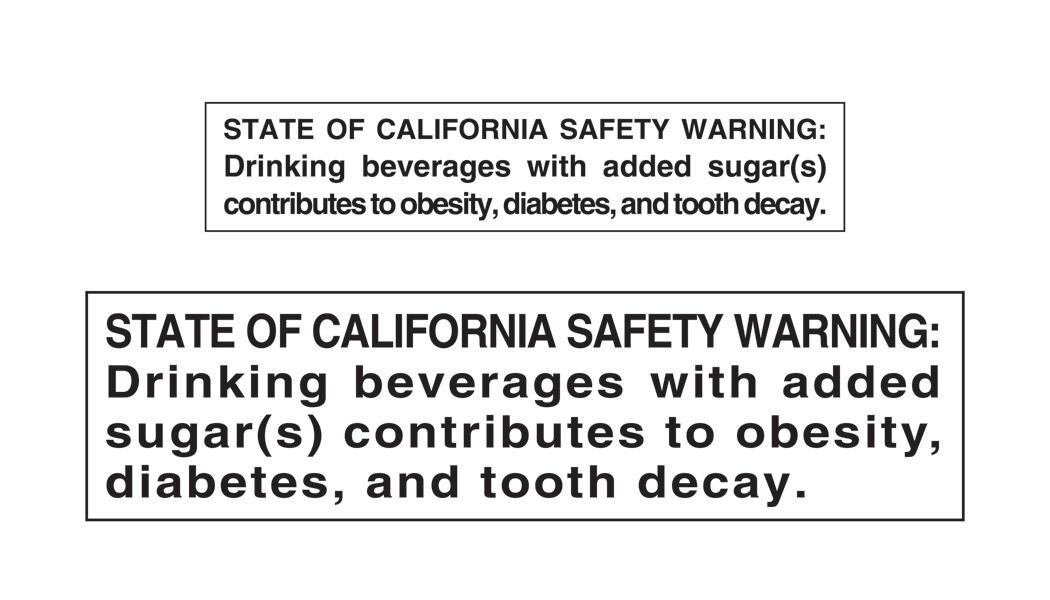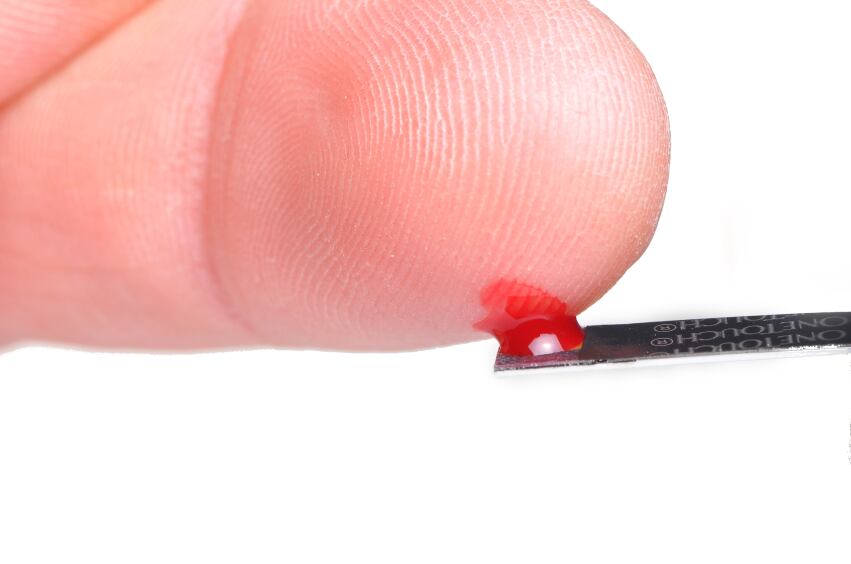“Consumers have a right to know about the adverse health effects of frequent sugary drink consumption,” said Sen. Bill Monning, the bill’s author. (Read the text of the bill here.) “SB 1000 does exactly what the beverage industry has long said we should do—educate the public—and this is the appropriate public health response to the scientifically proven risks that liquid sugar poses to the public’s health. The bill is a common sense measure that is overwhelmingly supported by the public.”
SB 1000, co-sponsored by California Black Health Network, California Center for Public Health Advocacy, California Medical Association (CMA) and the Latino Coalition for a Healthy California, would place the following warning on the front of all beverage containers with added sweeteners that have 75 or more calories per 12 ounces: “STATE OF CALIFORNIA SAFETY WARNING: Drinking beverages with added sugar contributes to obesity, diabetes, and tooth decay.”
The move comes just after the World Health Organization updated its 2002 guidelines for sugar, advising consumers to halve sugar intake from 10% to 5% of total daily calorie intake—and placing notable emphasis on sugar-sweetened beverages.
“There is increasing concern that consumption of free sugars, particularly in the form of sugar-sweetened beverages, may result in both reduced intake of foods containing more nutritionally adequate calories and an increase in total caloric intake, leading to an unhealthy diet, weight gain and increased risk of noncommunicable diseases (NCDs),” the WHO said.
The sugar industry as a whole has borne considerable blame for contributing to the rise of obesity and type 2 diabetes in the US, though calories from added sugars in the American diet are already down 39% since 2000, according to the American Journal of Clinical Nutrition.

This bill is about much more than soda, would be a red tape 'nightmare'
Karen Hanretty, spokesperson for CalBev, told FoodNavigator-USA that it’s important to note that the bill wouldn’t just affect soda manufacturers. “SB 1000 is about much more than soda,” she said. “It would impact hundreds of beverages like fruit juices, teas, soy/almond/rice milks while exempting beverages with animal milk (such as chocolate milk or frappuccinos, which are high fat, high sugar and high calorie).”
“SB 1000 is a red-tape nightmare for businesses and consumers,” noted CalBev executive director Bob Achermann and Ronald Fong, president and CEO of California Grocers Association, in an op ed piece published on the Los Angeles Daily News website this month. “If passed by the Legislature and signed into law by the governor, it will result in higher overhead costs for business that will ultimately end up being passed on to consumers at the grocery store and in restaurants—and not merely on soft drinks.”
Achermann and Fong referenced recent voluntary efforts by the US beverage industry to make healthier choices easier, including the implementation of national School Beverage Guidelines (replacing full-calorie soft drinks with lower-calorie, smaller portion options in all schools) and the Clear on Calories initiative to place calorie labels on the front of every package.
“Real progress is being made across the country to educate consumers and empower them to make choices that are best for them and their families,” they wrote.
Still, a recent Field Poll of 1,002 bipartisan California voters (paid for by the California Endowment) found that 74% support health-warning labels on sodas and other sugary drinks, while two-thirds of back a proposal to tax those drinks and use the money to make children healthier, according to a Field Poll. (Voters in Richmond and El Monte, CA considered two ballot proposals to tax sugary drinks in 2012, though both measures were defeated.)

Diabetes and ‘liquid sugar’
The CMA’s Dr. Ashby Wolfe noted that the warning label could provide a key preventive measure against type 2 diabetes, as research has linked daily soda intake and increased diabetes risk. “Diabetes rates have skyrocketed by more than 600% over the past generation, and liquid sugar is uniquely responsible for this epidemic,” he said. “Warning labels are a vital step toward preventing a lot of trouble down the road.”
The public health concerns raised concerning sugary beverages could arguably have an acute impact California’s communities of color, which are the largest consumers of sugary drinks, according to the California Black Health Network, which supports the warning labels.
“Unless these twin epidemics [of obesity and diabetes] are reversed, one in three children born after 2000—and nearly half of Latino and African-American children—will develop type 2 diabetes in their lifetime,” said Darcel Lee, president and CEO of the California Black Health Network. “For that reason, the California Black Health Network has proudly joined with our state’s doctors to support this key legislation.”
A ‘waste of taxpayer money’, as FDA label update would list added sugar
SB 1000’s introduction comes on the heels of the FDA’s first proposed update to the Nutrition Facts panel in 20 years, which would list added sugars on over half a million consumer products—ranging from cereal and ice cream to beverages like sports drinks and soft drinks.
“It does not make sense for California to waste time and taxpayer money singling out sugar-sweetened beverages when there is a new national effort under way,” wrote Achermann and Fong in their op ed letter.
The FDA hasn’t proposed a Daily Value for added sugars, which consumer advocacy groups argue is confusing for consumers, as they don’t know how much of a day’s worth a food contains. The Center for Science in the Public Interest has recommended a DV of 25 grams (or 6 teaspoons)—considerably less than the 23 teaspoons the average American now consumes, it argues.
